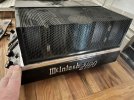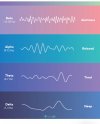D
Deleted member 48437
Guest
I started this with Cambridge Azure 851a amp, Cambridge CXN streamer, Qobuz premium subscription, good cables, power conditioner and B&W 802 speakers.
Wow, awakened to the real world of music!
Unfortunately, the Cambridge 851a was one of the many, but not all, to sustain that dreaded turns-off just after it turns on. Eventually, after 8 months of Cambridge attempted repairs, I decided to go with Cambridge’s all-in-one EVO 150 “Award Winning”…
Piece of junk! Wow. Back to Bluetooth sound!
Cambridge’s EVO 150 does not use a toroidal supply (851a did). The EVO 150 has it’s own streamer built in so I no longer used the CXN streamer. The EVO 150 had similar RMS output as the 851a but the EVO 150 is underpowered for my B&W 802’s. The EVO 150 uses a cheaper ESS Sabre 9018 chipset instead of a Pro. The EVO 150 is a class d vs the 851a is a class a/b.
The EVO 150 has a broad dynamic range but not as good as the 851a. The highs are the same with both amps. The woofers flutter at the 7-8/10 volume whereas, the 851a would make your ears bleed.
The Cambridge EVO 150 falls apart in the soundstage, timber and overall midrange. Instead of being in the front row of a concert (851a) the EVO 150 sounds like you are 100-150 ft back from the stage. Instruments blur at the same notes. It is hard to tell which instrument is playing because they all sound the same from that far away.
Bottom line: Music can be great but if you have heard better before then switch to the Cambridge EVO 150, you will be out $3,000 on a junk sounding machine. I could not imagine that an amplifier could make such a difference. The Cambridge EVO 150 is class D, no toroidal power, lowest of the ESS Sabre chipsets and I wonder if there is a streamer hardware cost-savings decrease as well. Compared with the Cambridge 851a, though reliability issues with but some, the Cambridge EVO 150 is unsatisfying and a major decrease in soundstage, timber and headroom.
Wow, awakened to the real world of music!
Unfortunately, the Cambridge 851a was one of the many, but not all, to sustain that dreaded turns-off just after it turns on. Eventually, after 8 months of Cambridge attempted repairs, I decided to go with Cambridge’s all-in-one EVO 150 “Award Winning”…
Piece of junk! Wow. Back to Bluetooth sound!
Cambridge’s EVO 150 does not use a toroidal supply (851a did). The EVO 150 has it’s own streamer built in so I no longer used the CXN streamer. The EVO 150 had similar RMS output as the 851a but the EVO 150 is underpowered for my B&W 802’s. The EVO 150 uses a cheaper ESS Sabre 9018 chipset instead of a Pro. The EVO 150 is a class d vs the 851a is a class a/b.
The EVO 150 has a broad dynamic range but not as good as the 851a. The highs are the same with both amps. The woofers flutter at the 7-8/10 volume whereas, the 851a would make your ears bleed.
The Cambridge EVO 150 falls apart in the soundstage, timber and overall midrange. Instead of being in the front row of a concert (851a) the EVO 150 sounds like you are 100-150 ft back from the stage. Instruments blur at the same notes. It is hard to tell which instrument is playing because they all sound the same from that far away.
Bottom line: Music can be great but if you have heard better before then switch to the Cambridge EVO 150, you will be out $3,000 on a junk sounding machine. I could not imagine that an amplifier could make such a difference. The Cambridge EVO 150 is class D, no toroidal power, lowest of the ESS Sabre chipsets and I wonder if there is a streamer hardware cost-savings decrease as well. Compared with the Cambridge 851a, though reliability issues with but some, the Cambridge EVO 150 is unsatisfying and a major decrease in soundstage, timber and headroom.




